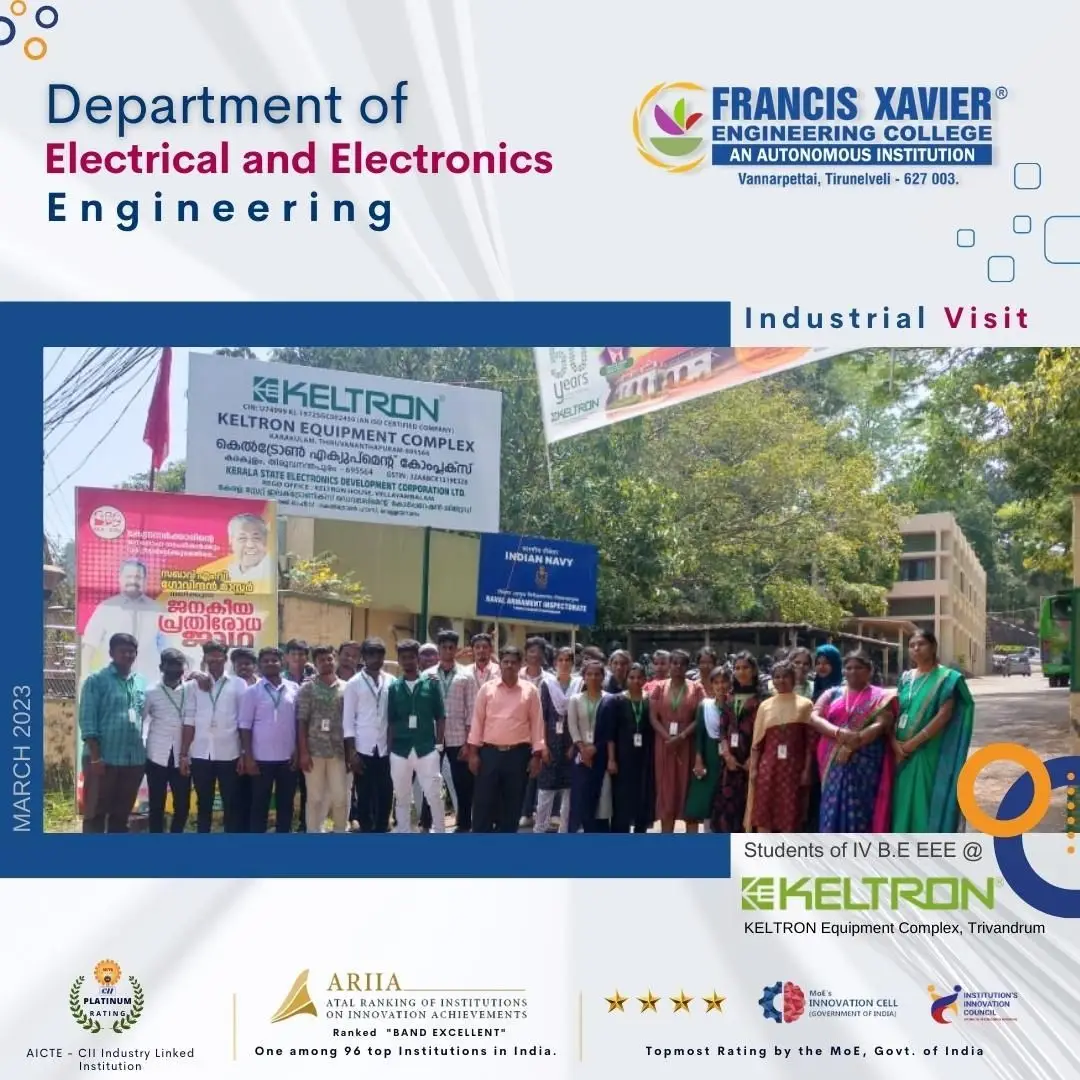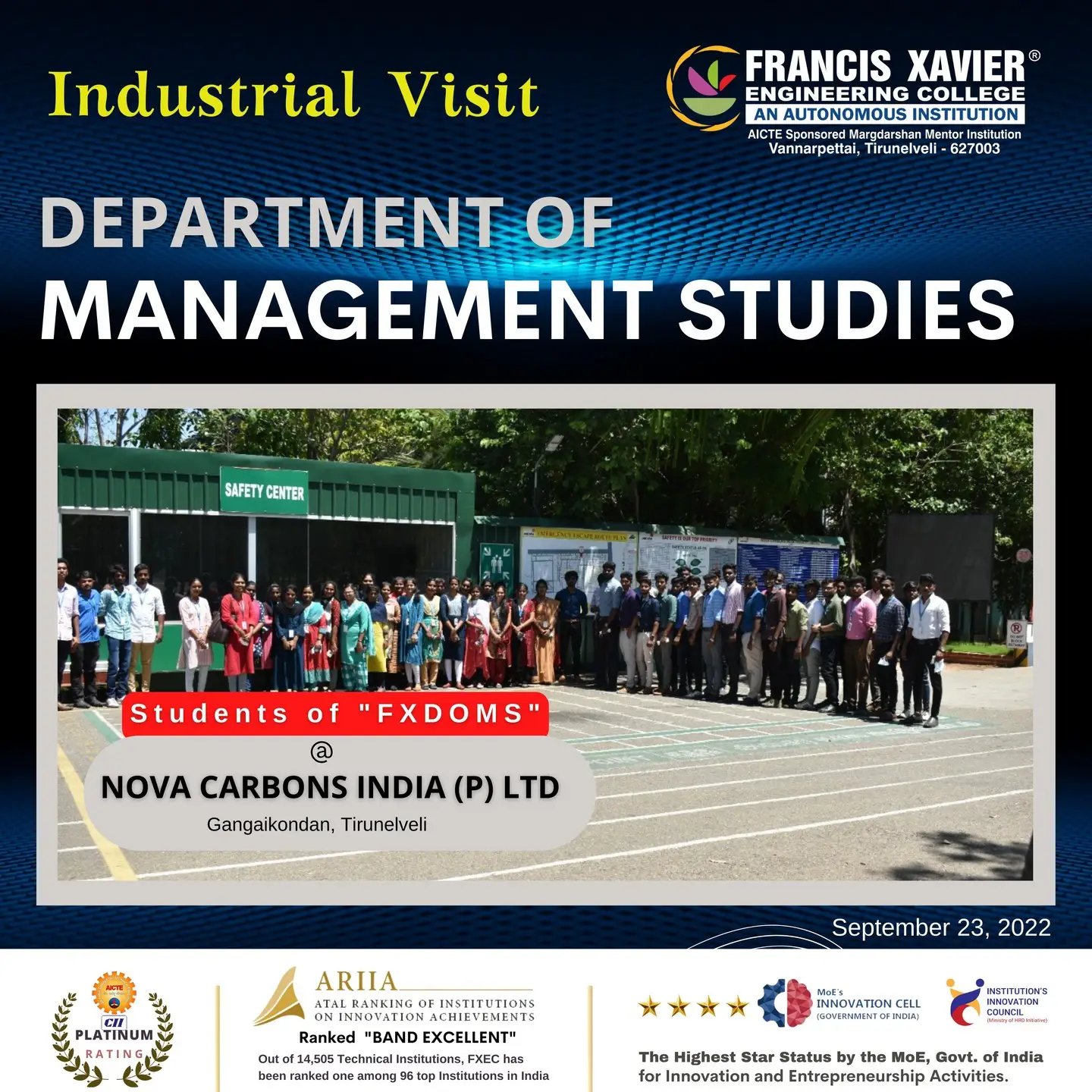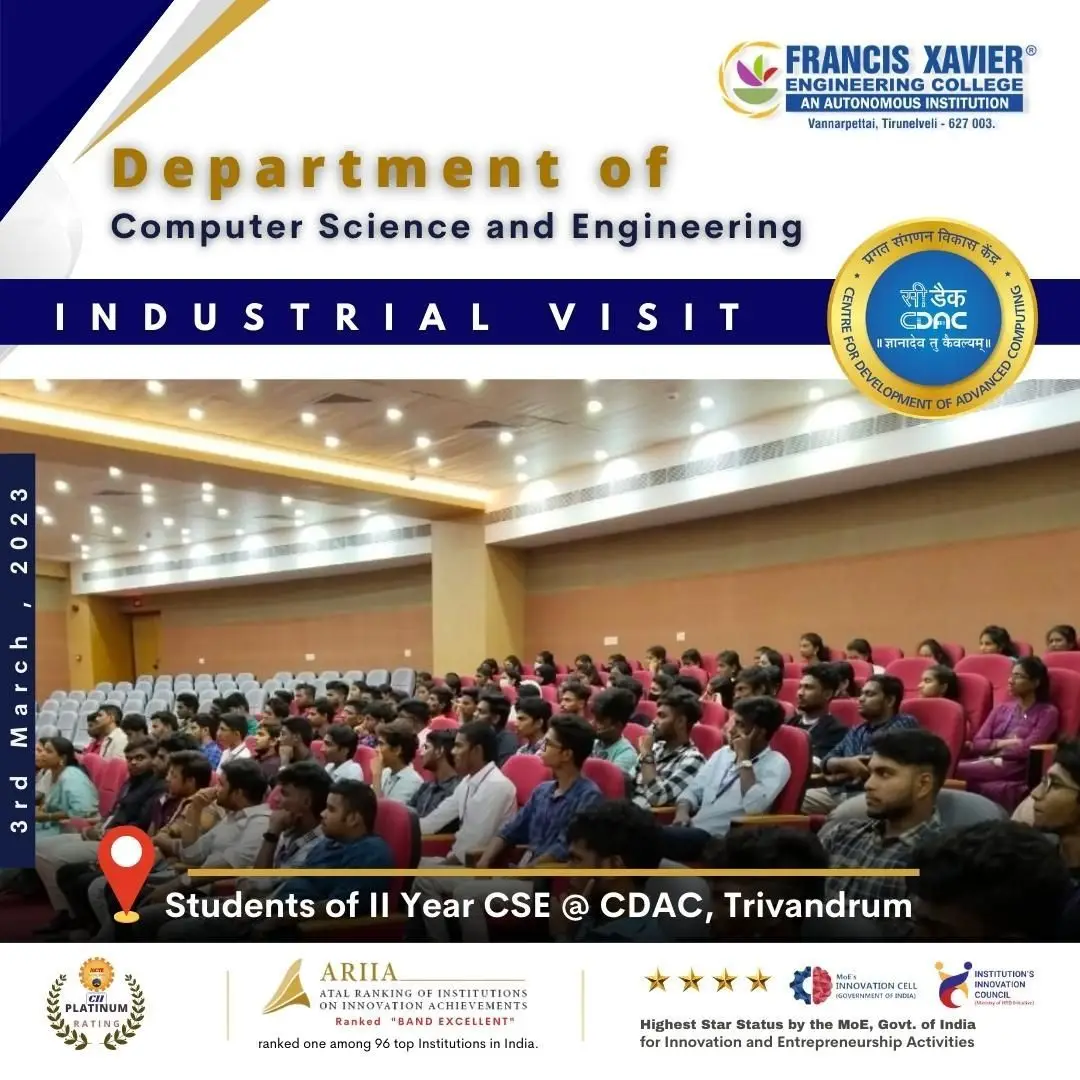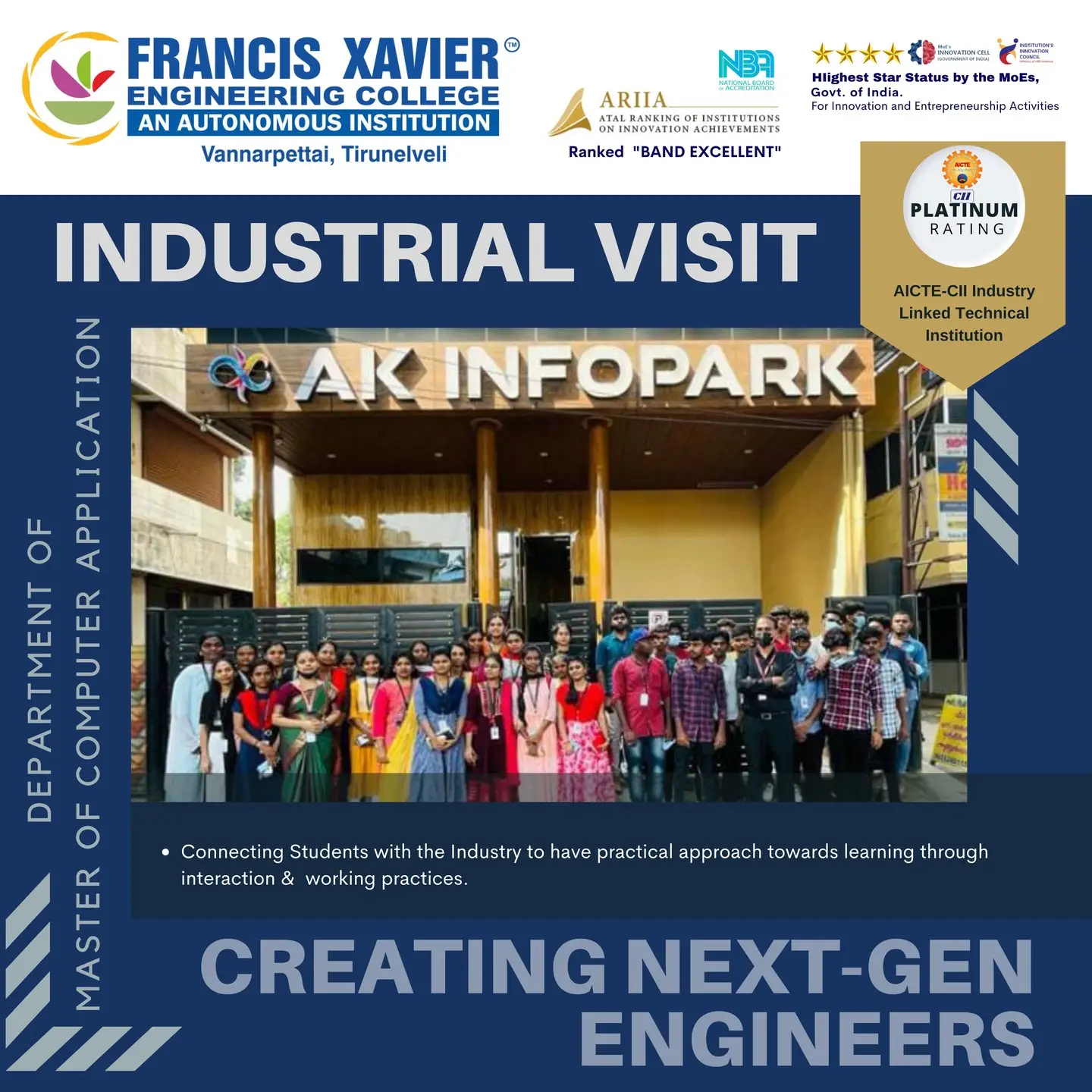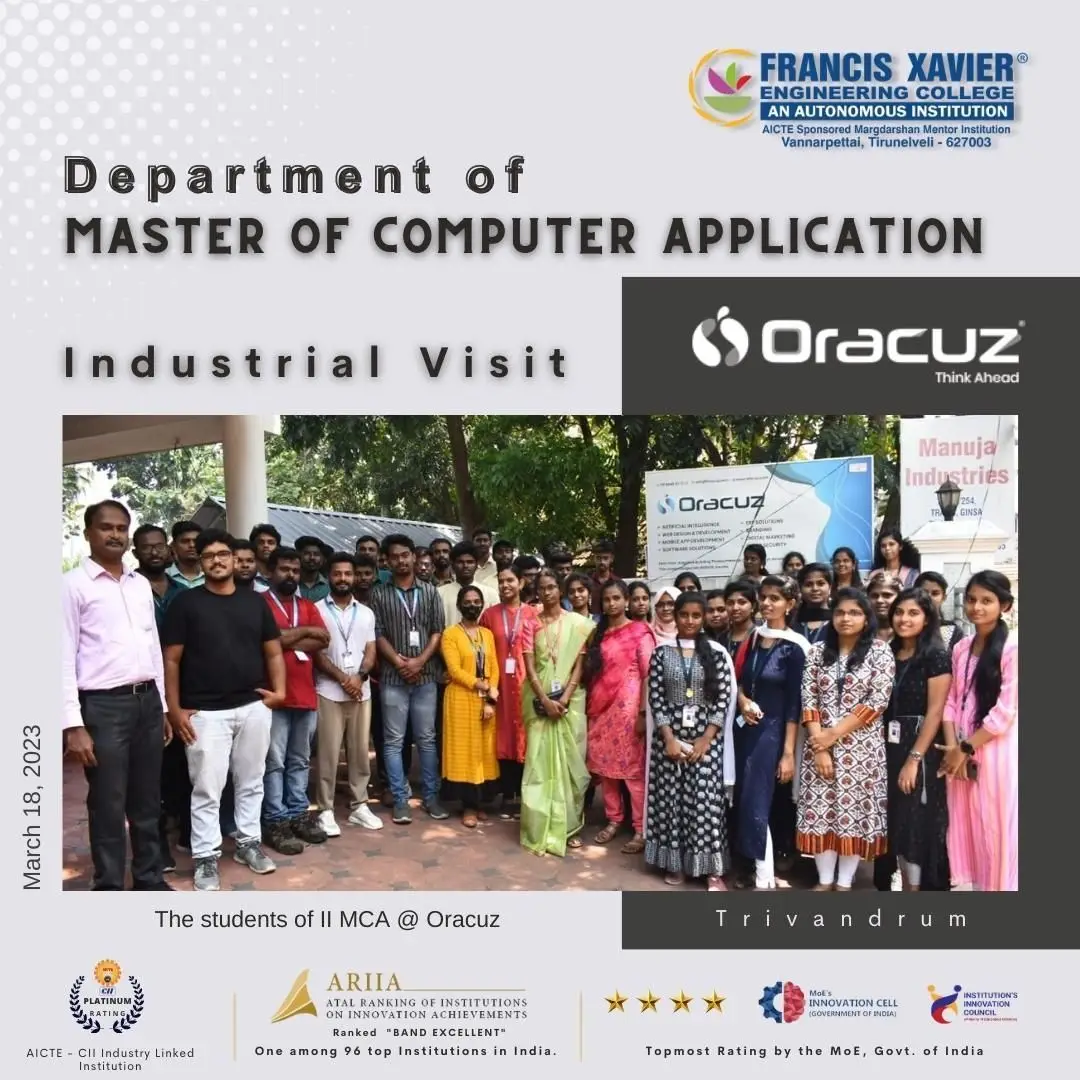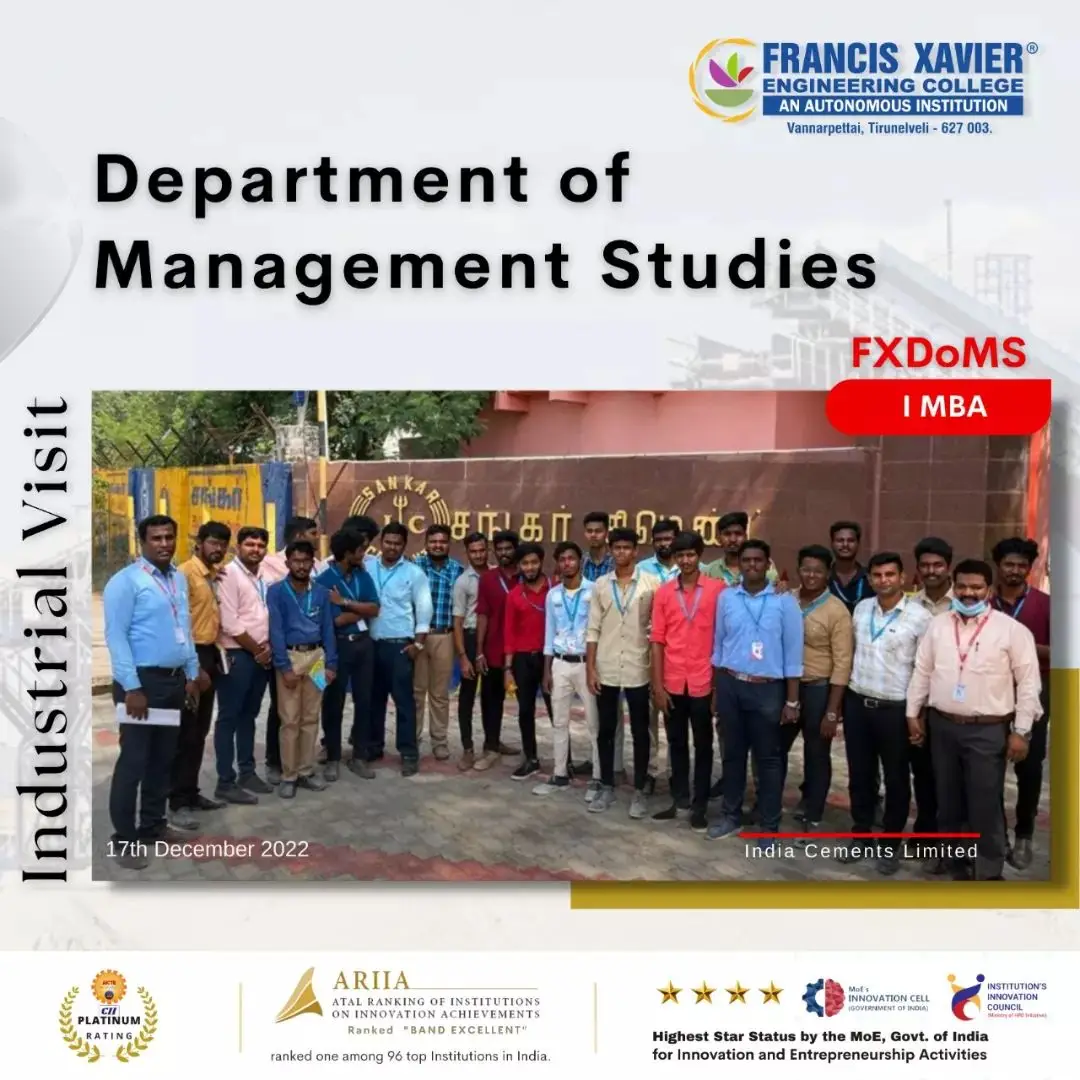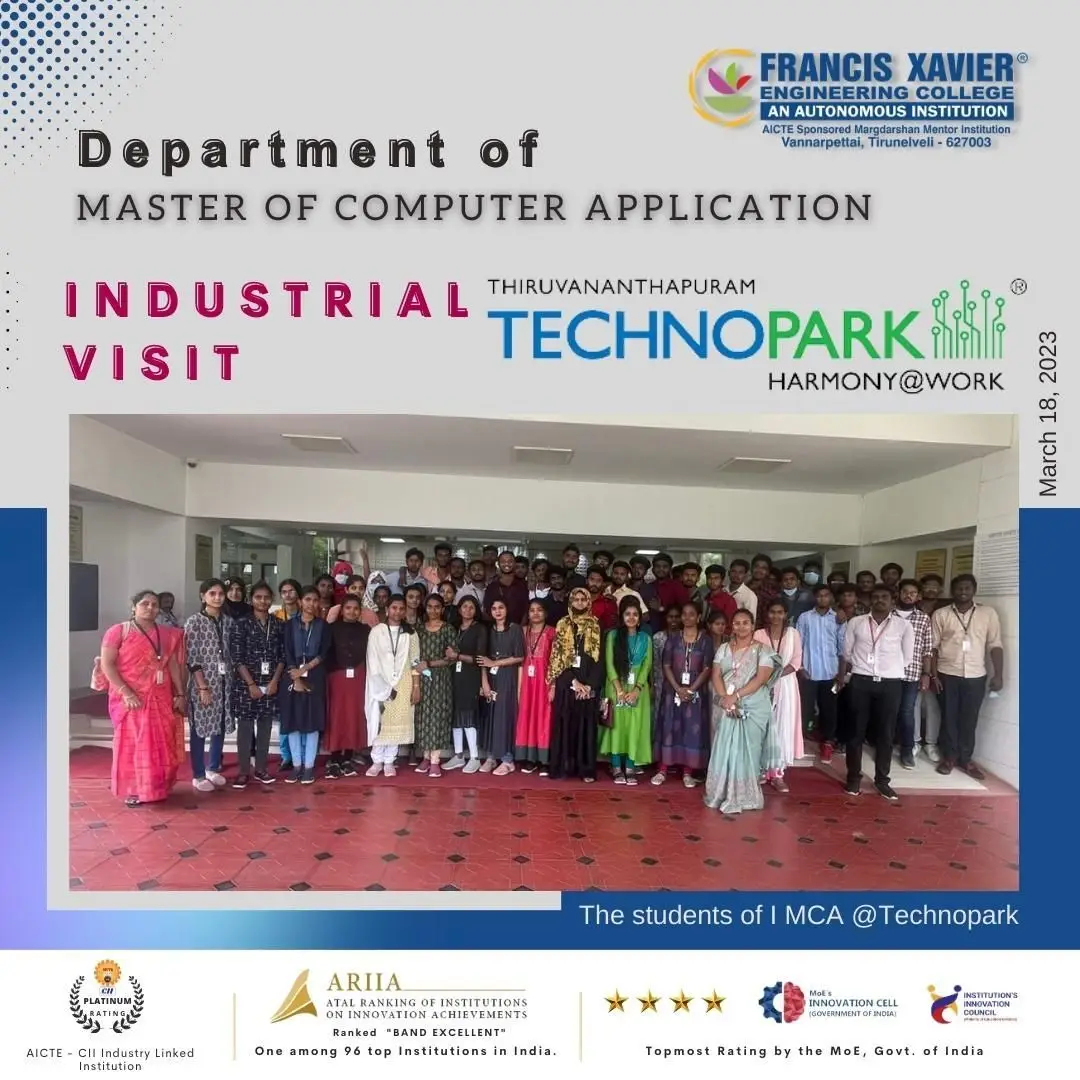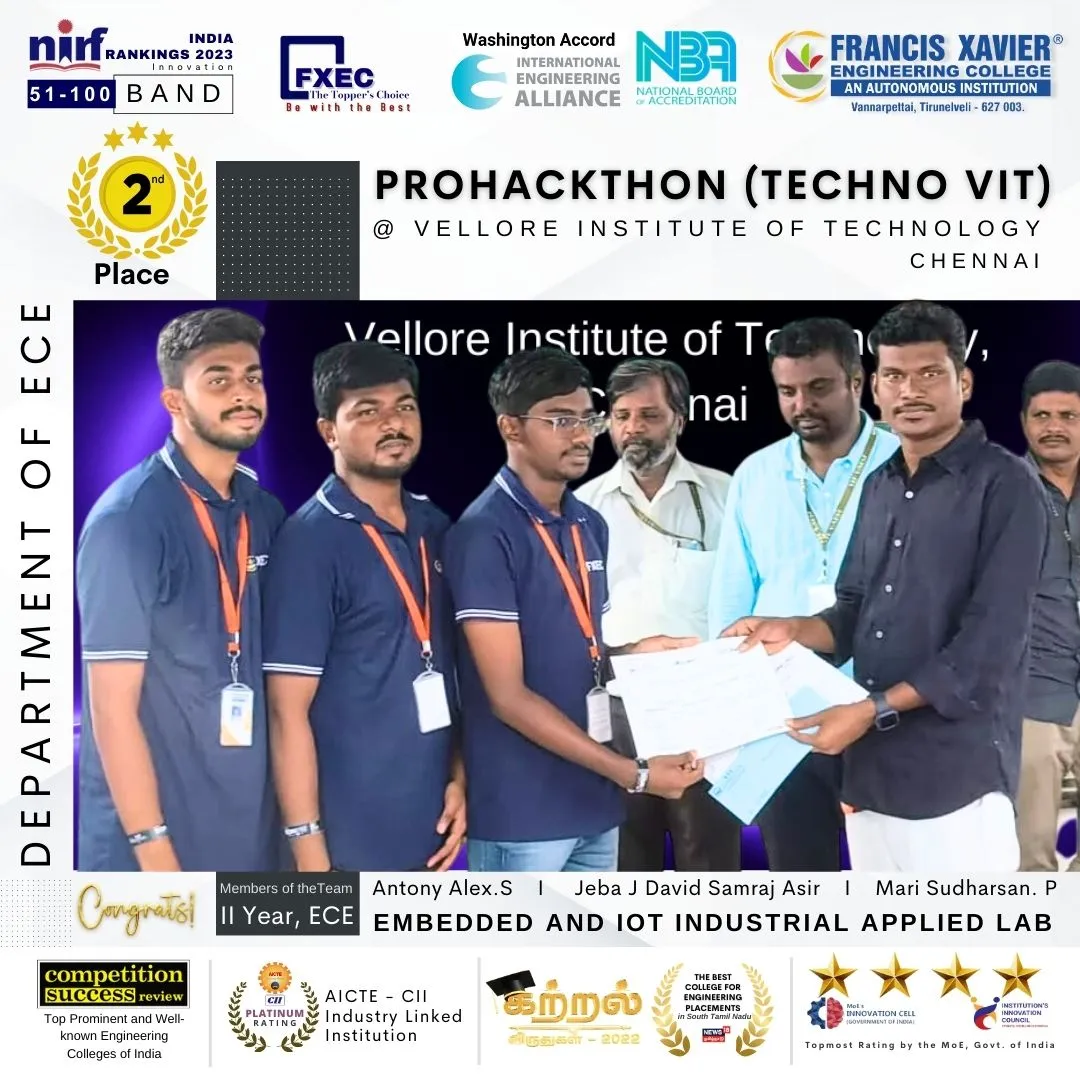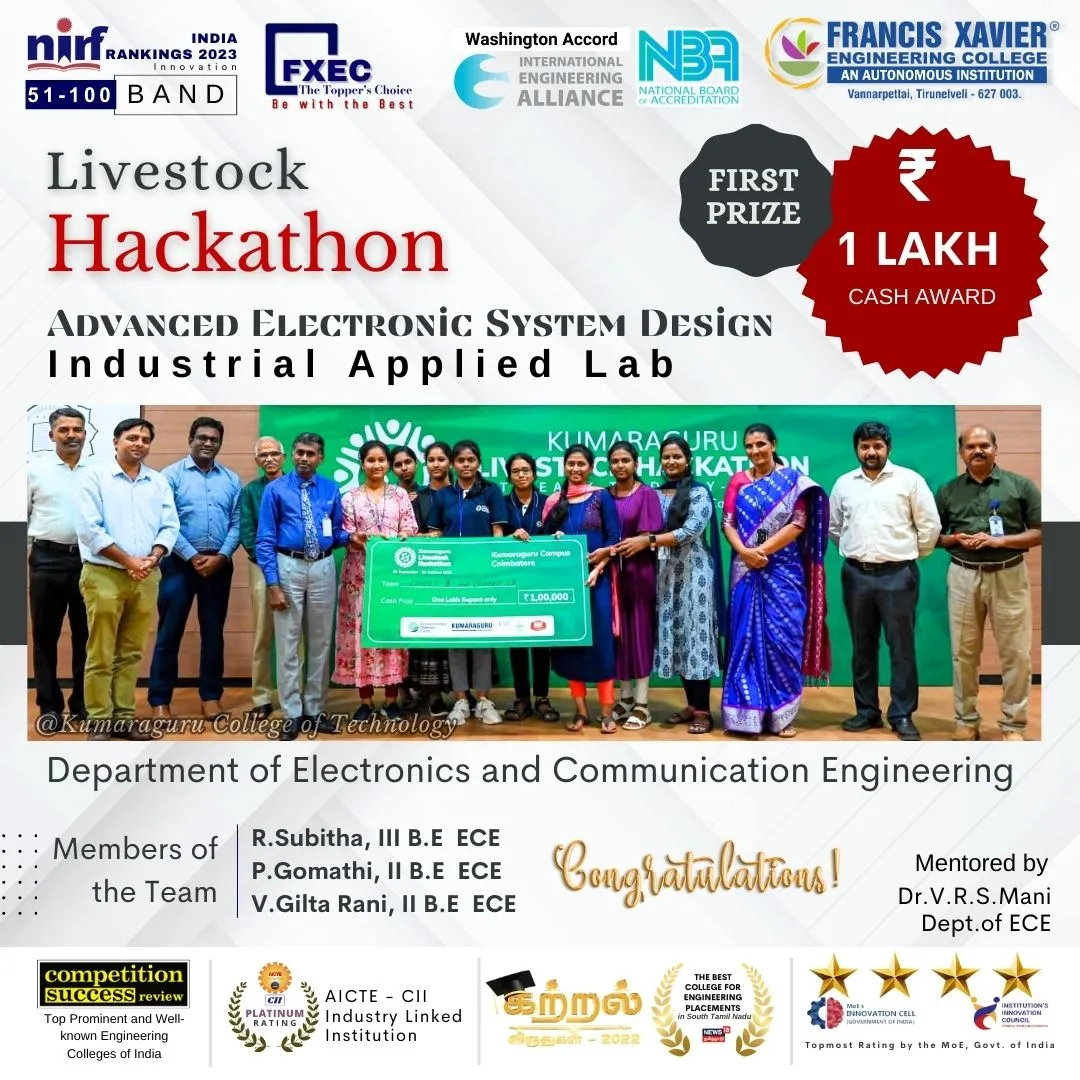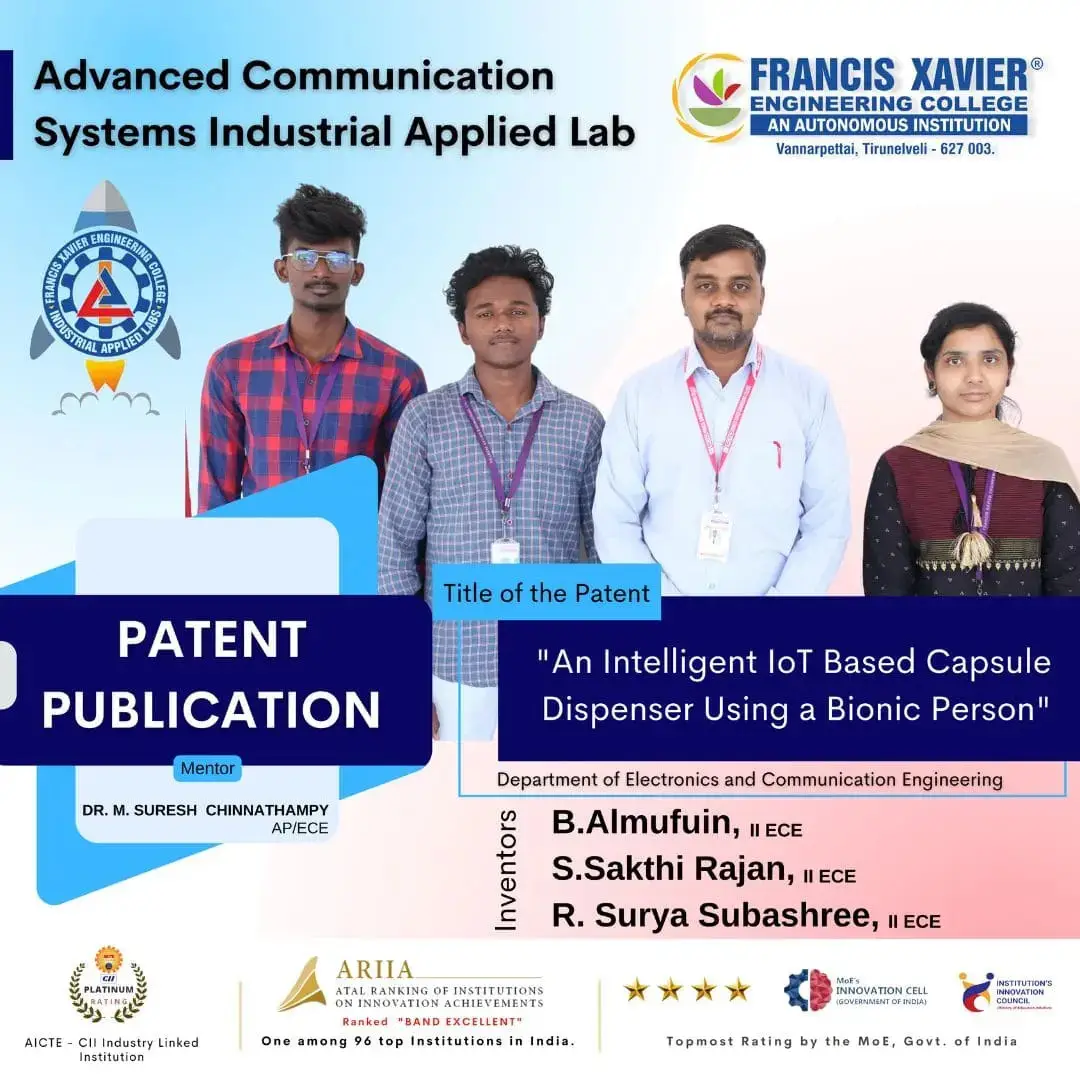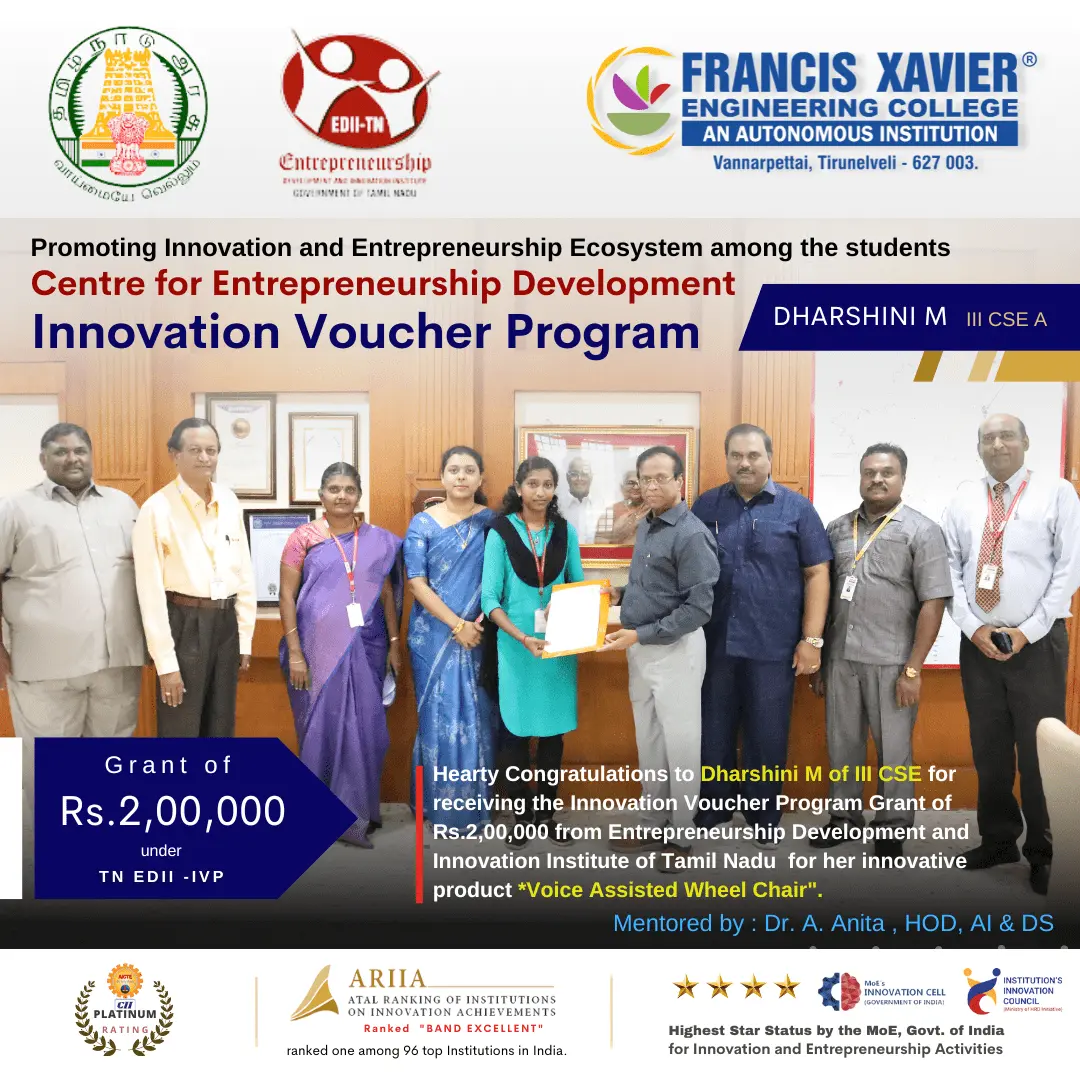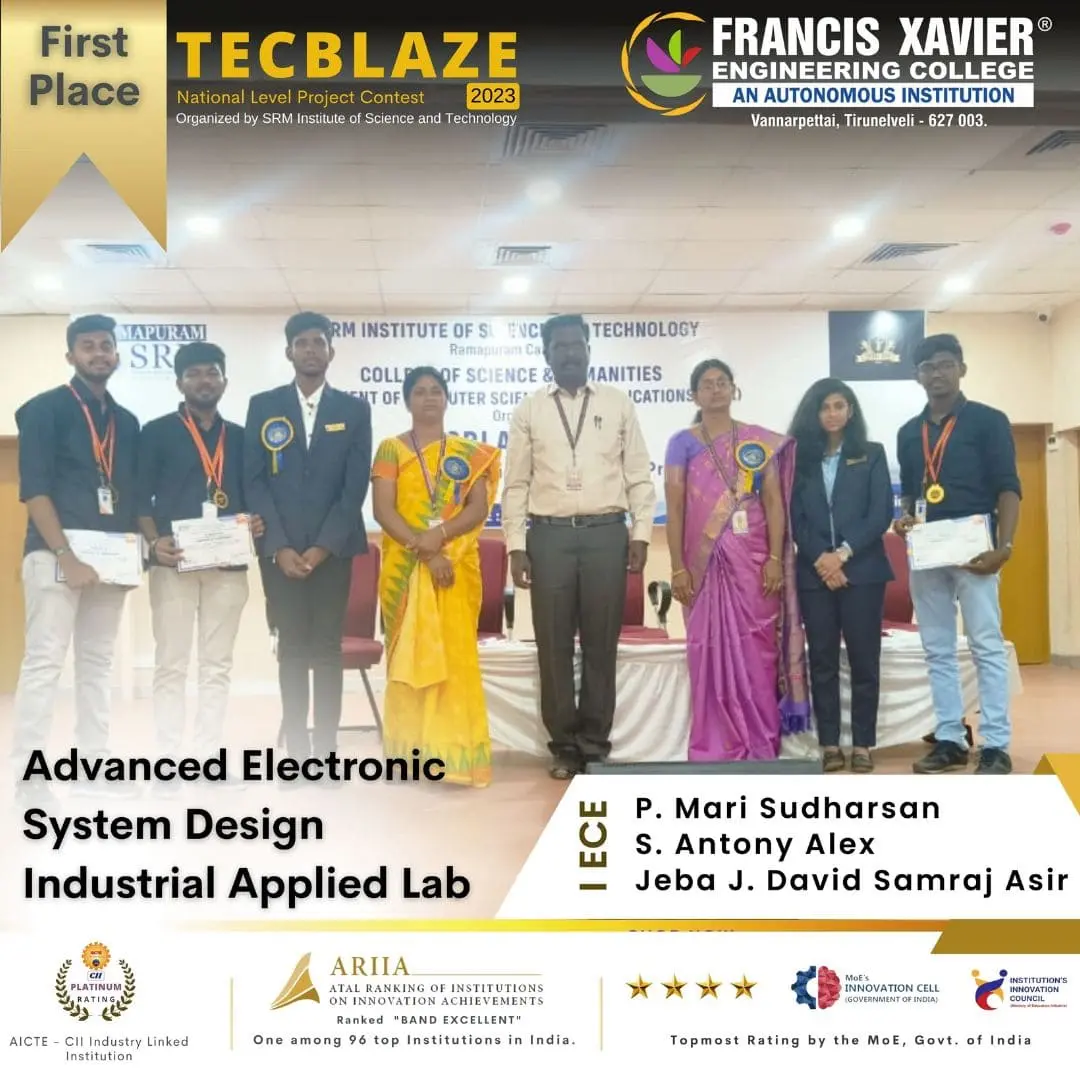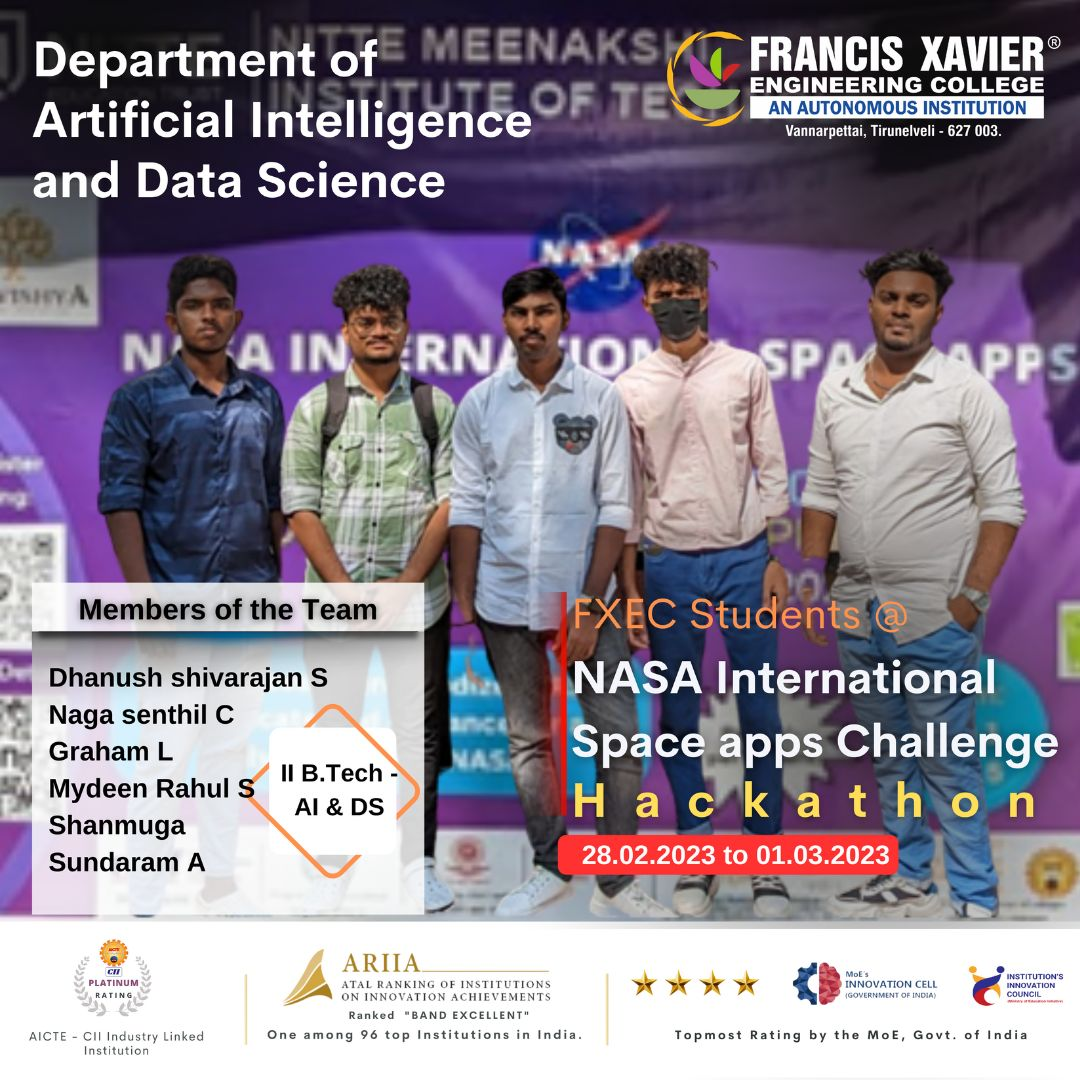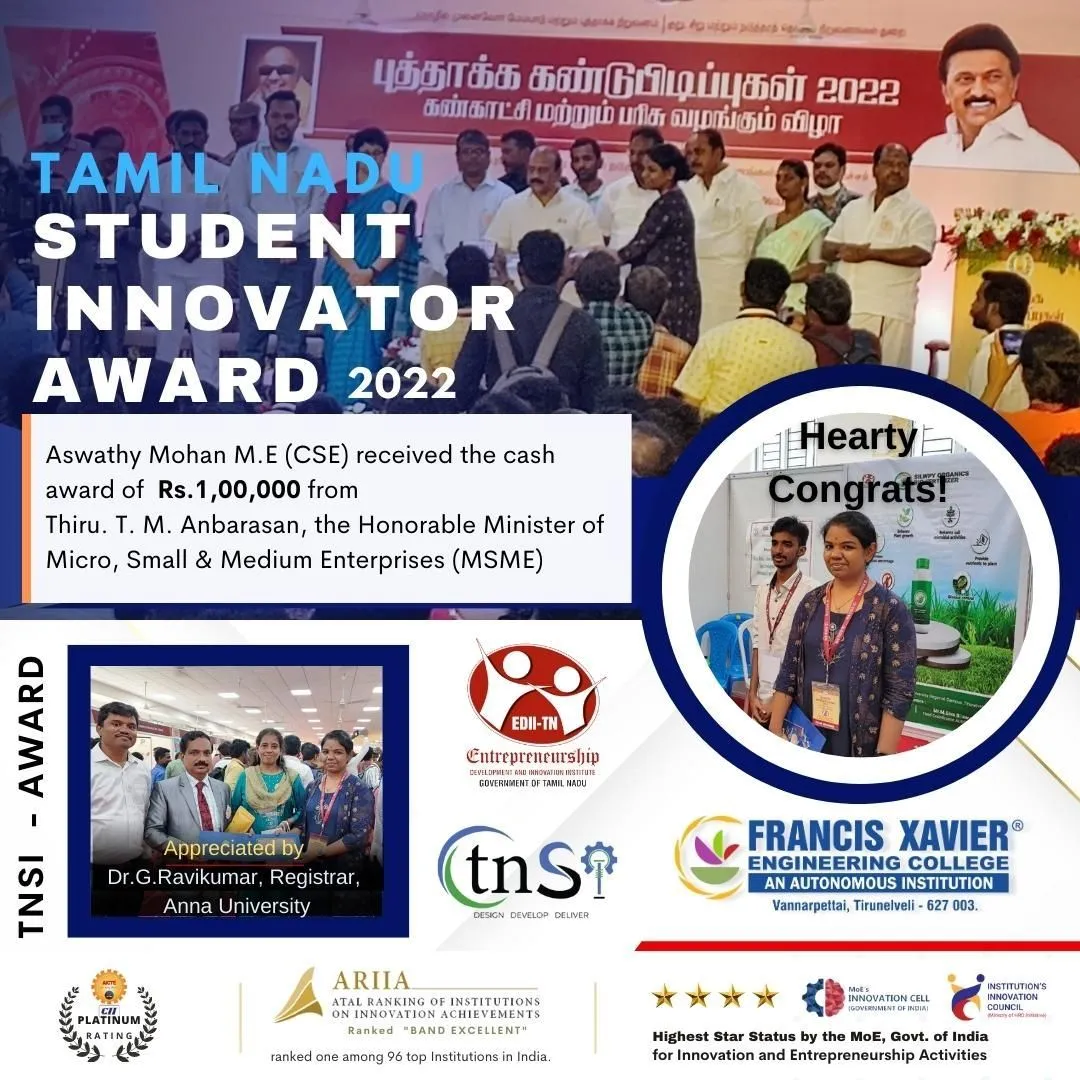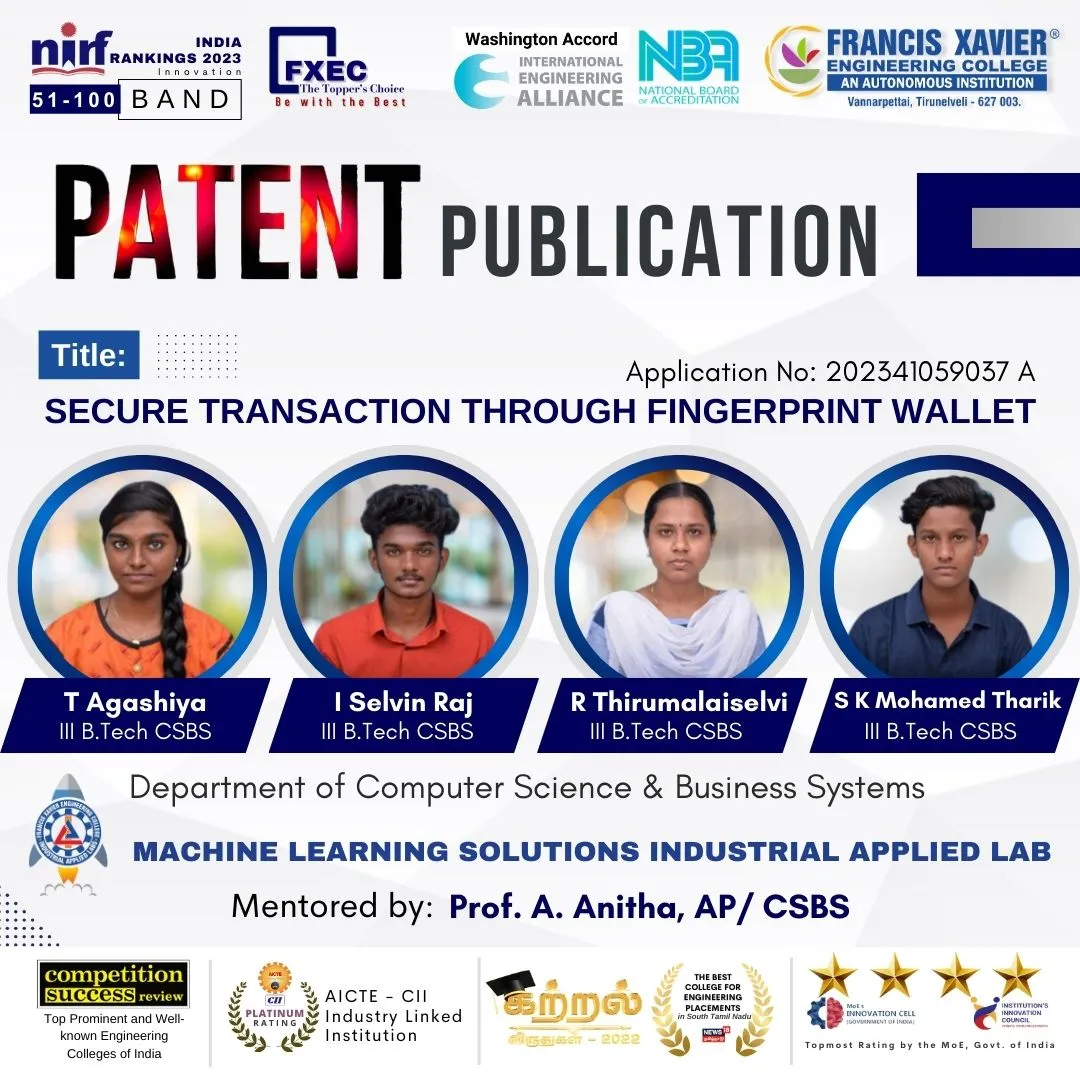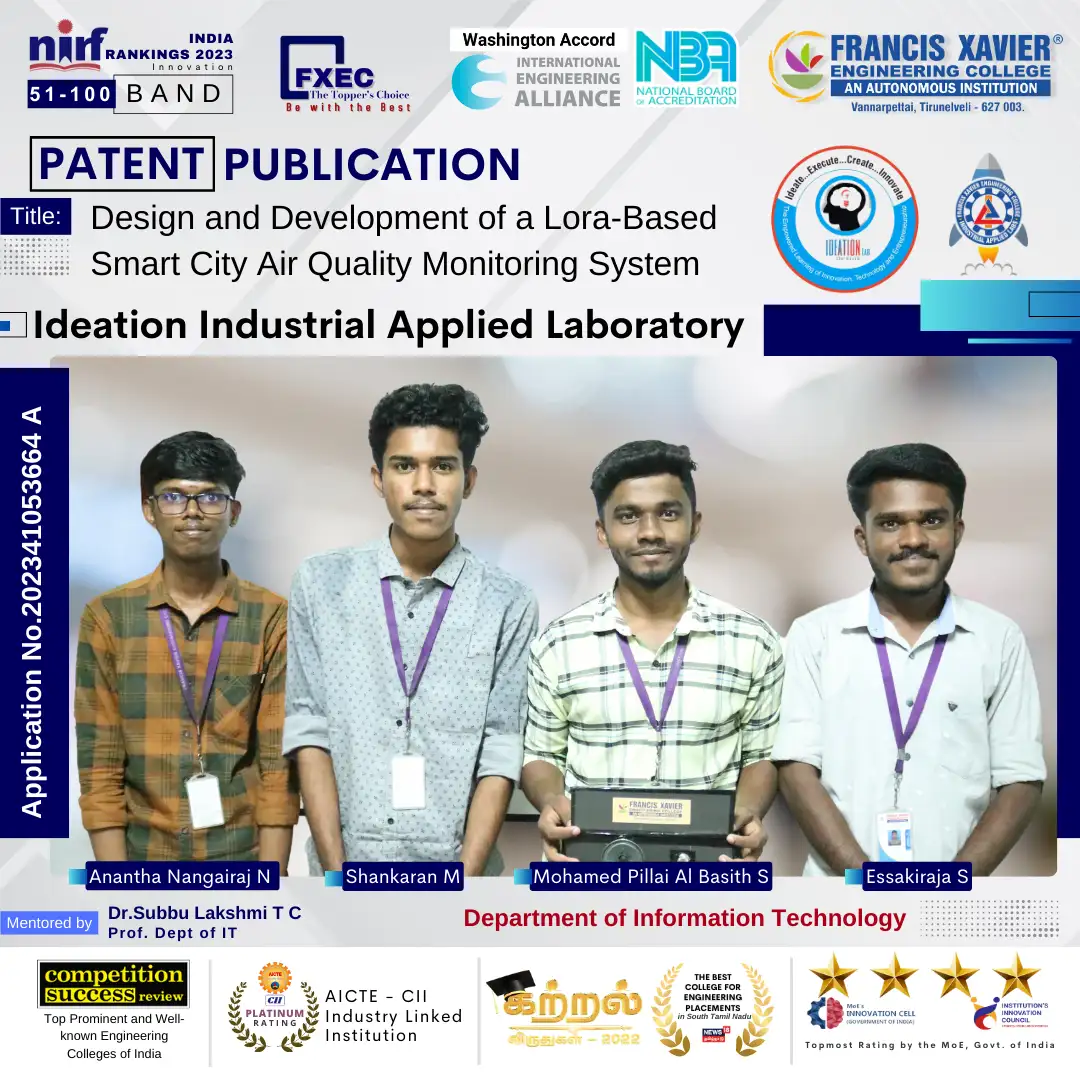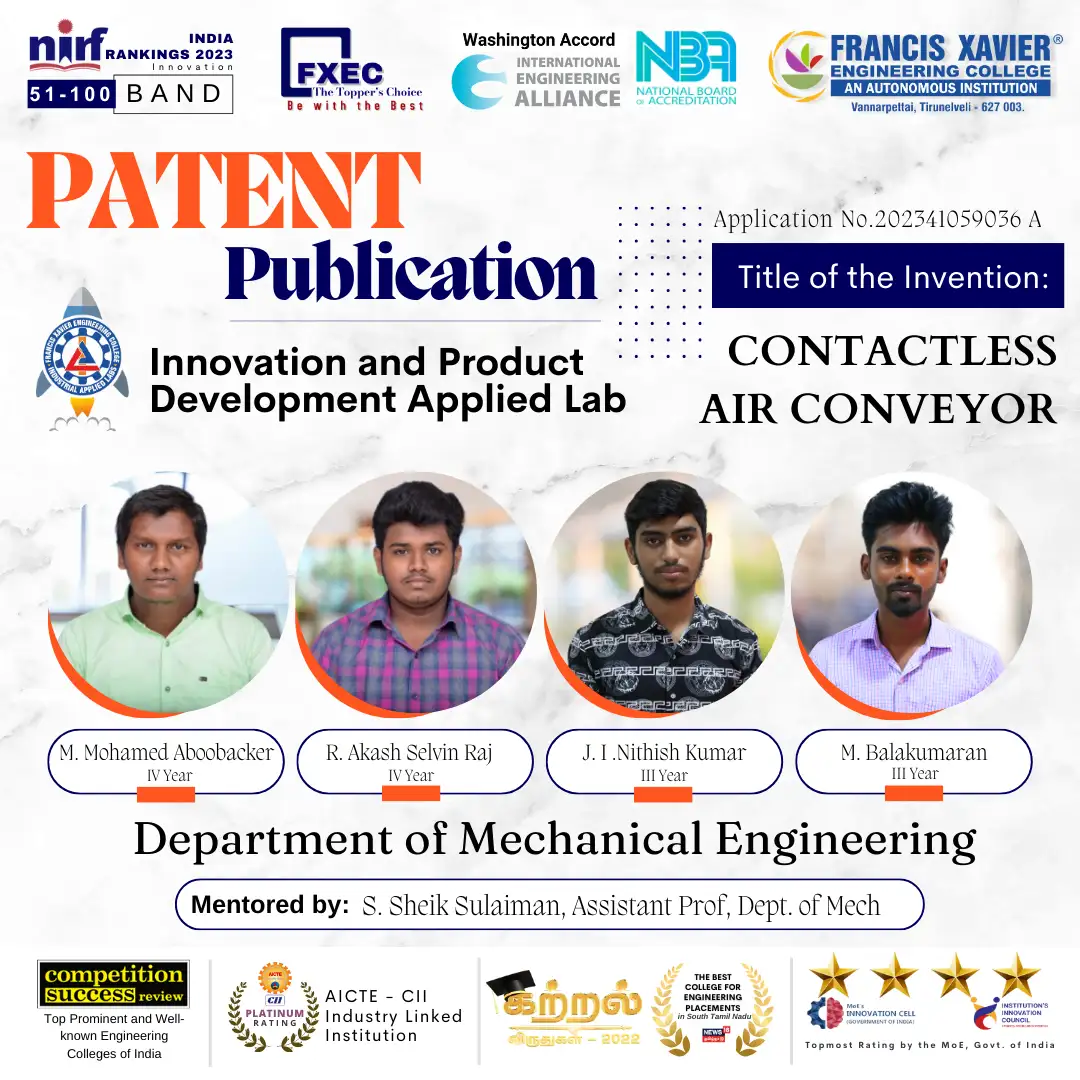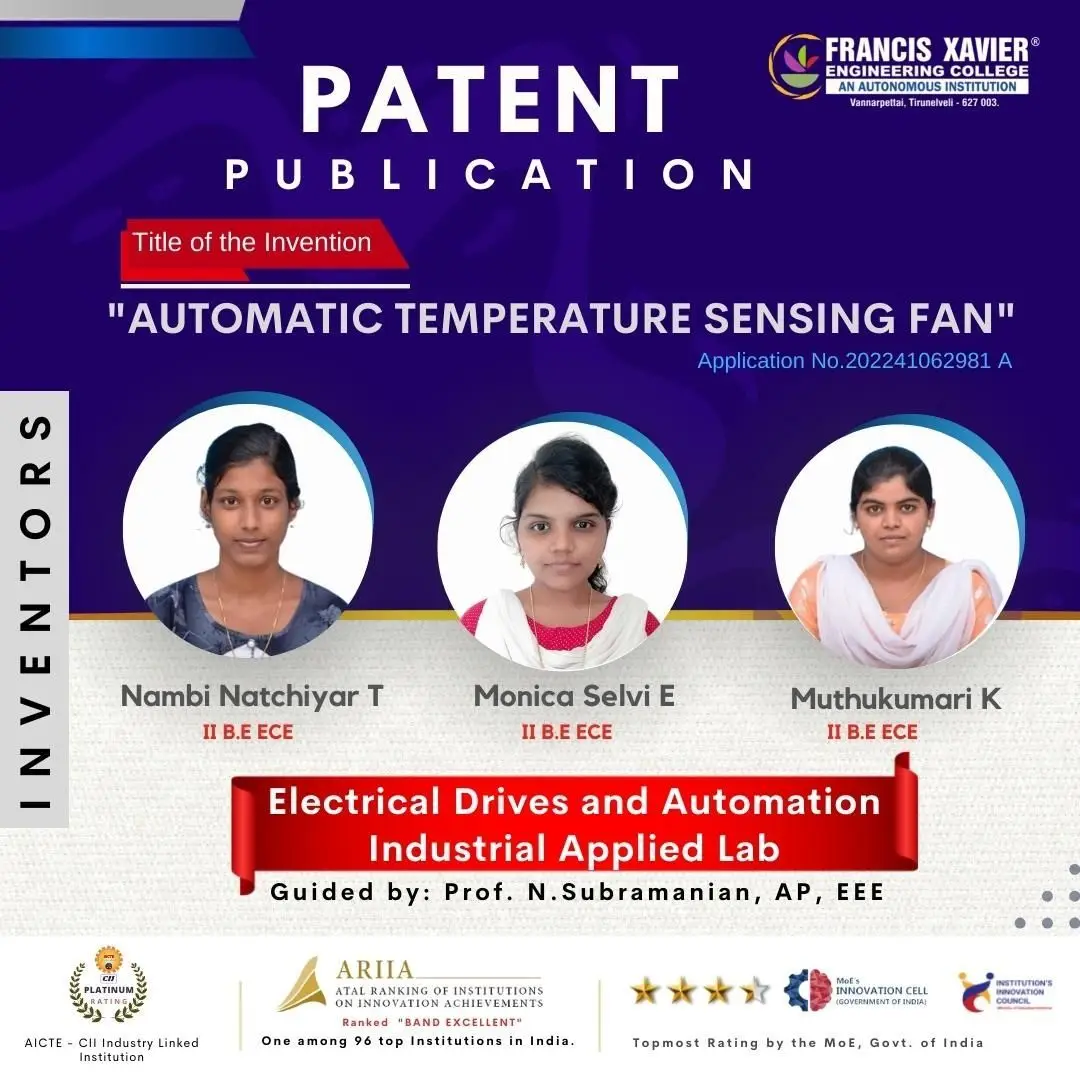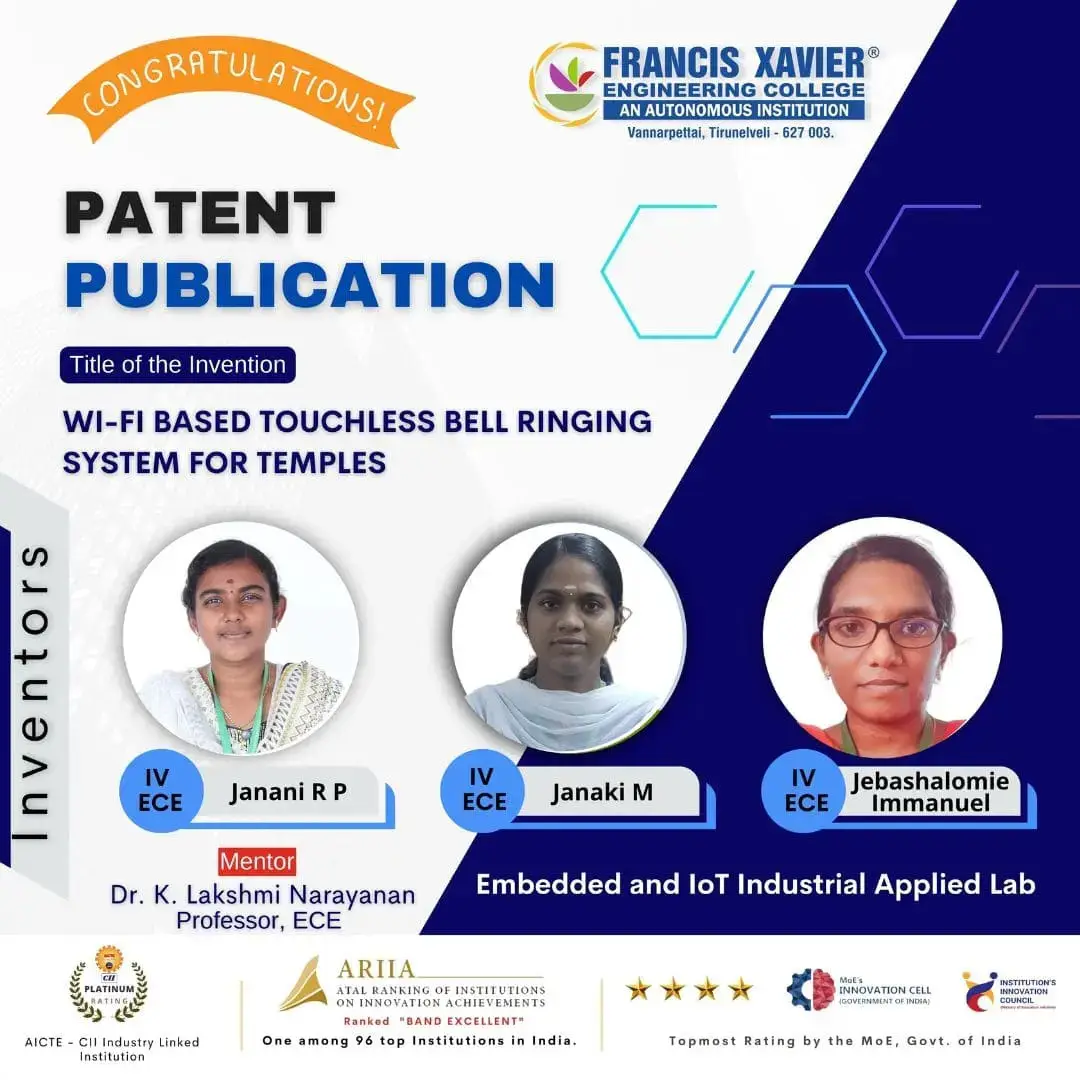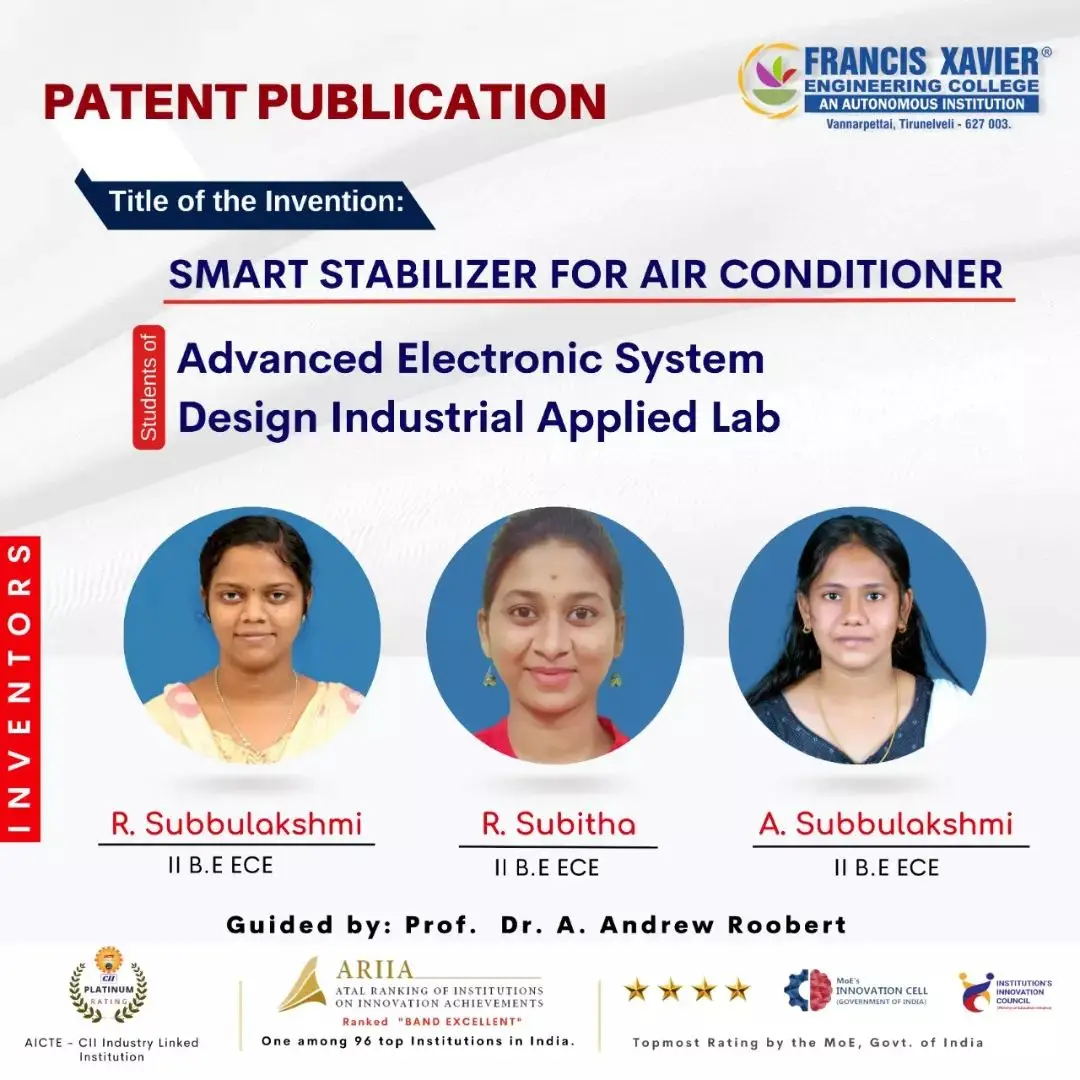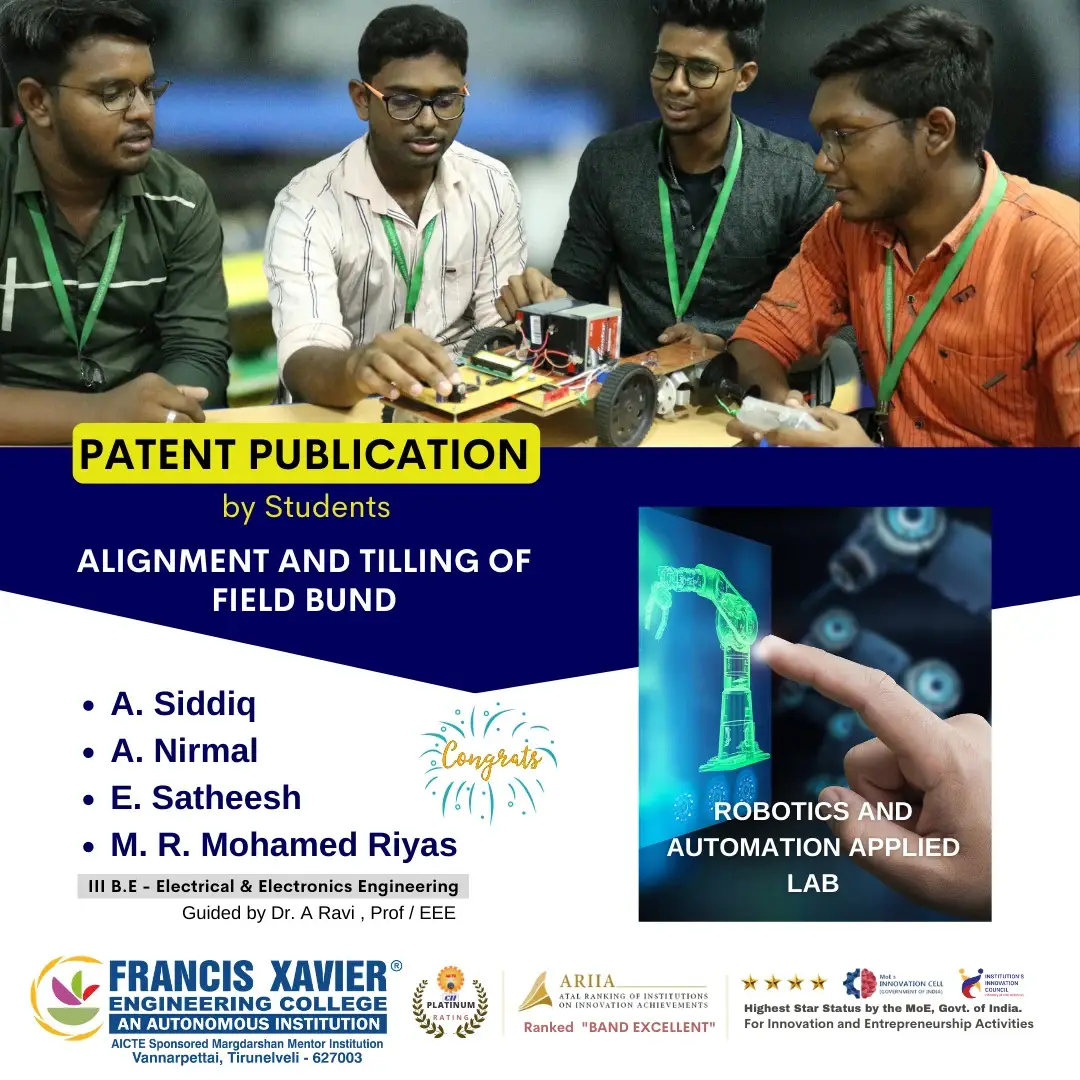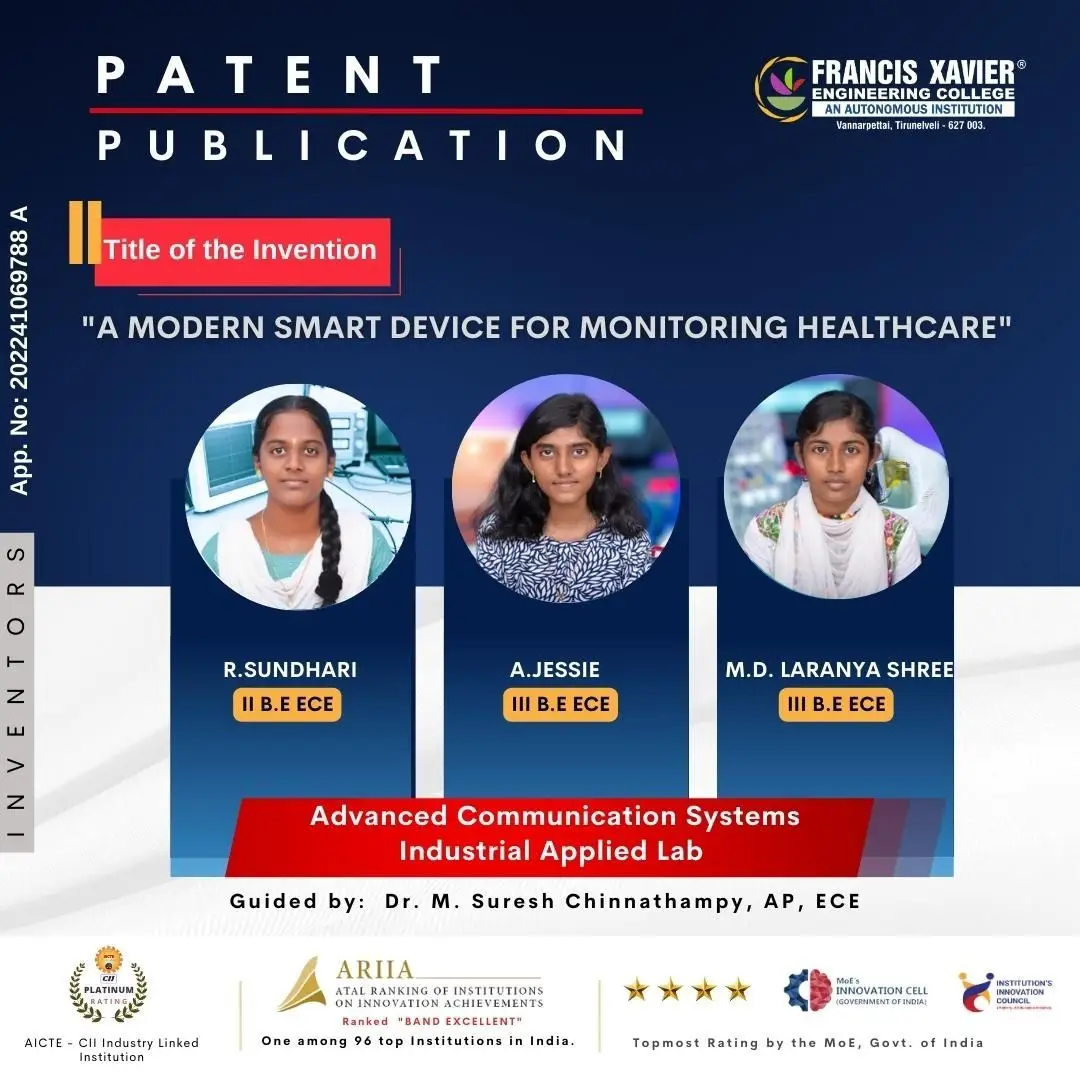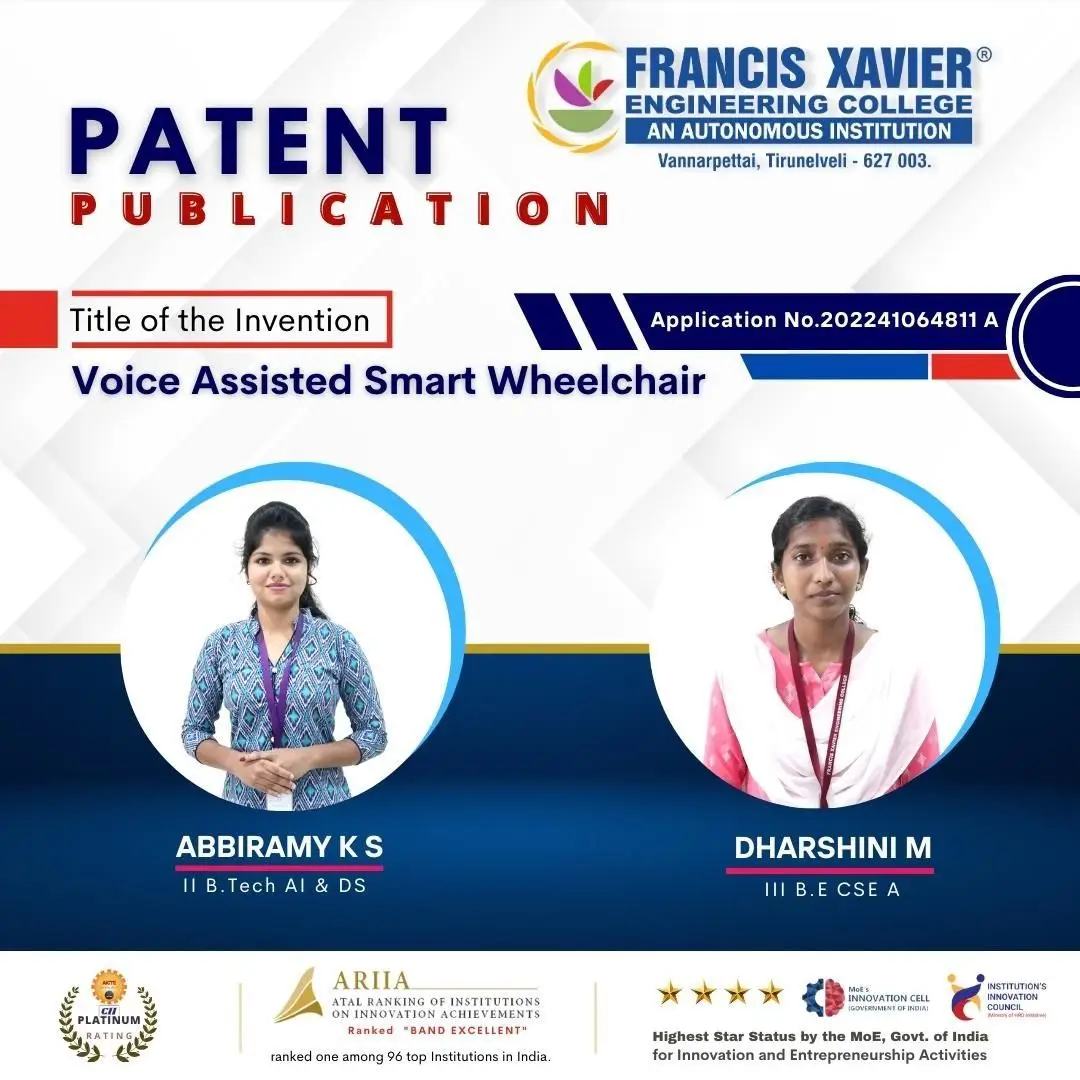Why EEE from FXEC

Industry Supported Laboratories
Robotics and Automation Lab
Electrical Drives and Automation Lab

Academic Partnerships




Research
No.of Faculty with Ph.D - 8
No.of Paper Publication Last 4 Years - 258
No.of Patents published - 11
No.of Patents published by Students - 13
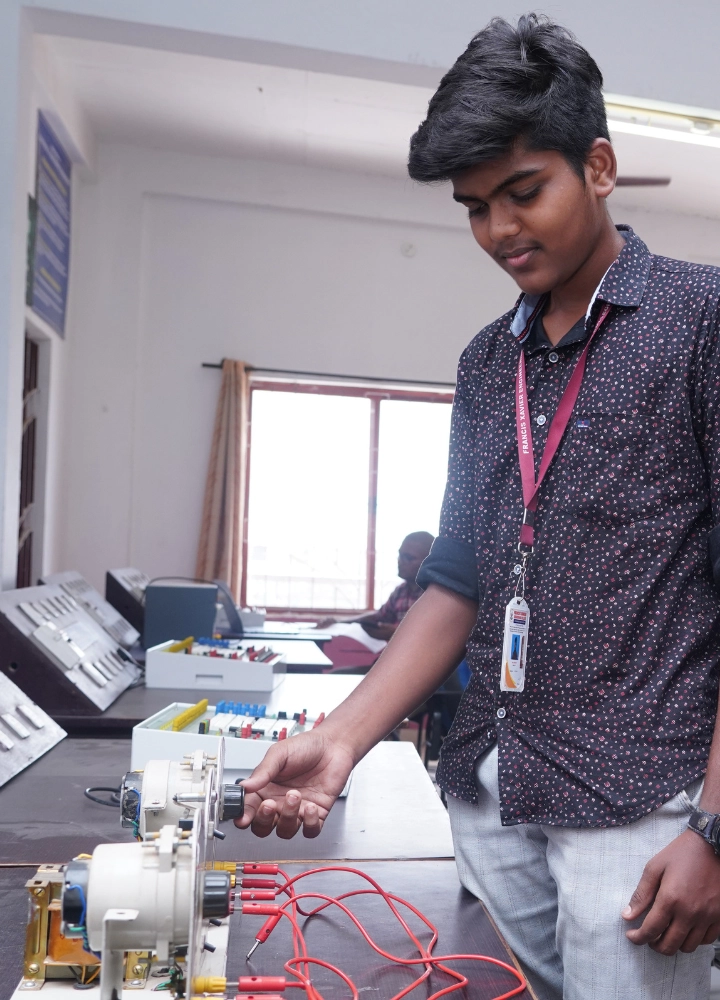
Programme Overview
Electrical and Electronics Engineering is one of the core branch of Engineering studies which is yet evergreen due to its day importance. Electrical Engineering deals with the study of application of Electricity, Electronics and Electromagnetism.
The Department of Electrical and Electronics Engineering was established in the year 2002 with an intake of 60 seats per year, to cater the ever challenging needs of technical excellence in all areas such as Power Systems, Control Systems, Power Electronics, Digital Signal processing, Robotics and Drones in the emerging areas of Electrical Engineering are Renewable Power Generation, Smart Grids, Electric and Hybrid Vehicles. The Department has taken up the challenge of developing Electrical Engineers capable of facing emerging challenges. The intake of the Department was enhanced to 90 seats in the year 2005 and subsequently to 120 seats in the year 2011. The Department was recognized as Research centre by Anna University in the year 2016 to carry out collaborative research work for Ph.D. scholars. The Electrical and Electronics Engineering Department offers two M.E programmes. PG in Power Electronics and Drives was started in the year 2011 with an intake of 18. PG in Power systems Engineering was started in the year 2013 with an intake of 18.
The B.E Electrical and Electronics Engineering programme has been continuously accredited and re- accredited by National Board of accreditation (NBA) since 2011.The college Academic Council (AC) and Board of Studies (BoS) of the department strive to provide quality education with most advanced curriculum for both under graduate and post graduate programmes with the vision to make the students excel in the domain of Electrical and Electronics Engineering.
The Department conducts regular seminars, Guest lectures, Skill Training, Workshops and Technical symposiums on latest technologies for the benefit of students and Faculty community.
The Department has well equipped laboratories with confest equipment in Electrical Machines Lab, Electrical Power Systems Simulations Lab, Power Electronics Lab, Electrical Measurements and Instrumentation Lab, Control Systems Lab, Electronics Lab and Engineering Practices Lab.
NI Lab view Academy is functioning in the Department to give training to students and faculty on the Lab view programming. The students are trained with Industry Automation Projects. The faculty members of the Department are highly qualified and experienced with various stream of Electrical Engineering.
- 714+ Total Offers
- 315 Internship with Salary
- 17 Lac Per Annum Highest Package
- 126 Companies Recruited
Vision
To be a Centre of excellence for technology transformation in the field of Electrical and Electronics Engineering.
Mission
- To empower the vibrant young leaders with technical skills and knowledge in the field of technology.
- To facilitate the industries to adopt effective solutions in the field of electrical and electronics engineering through consultancy.
- To transform technology for rural, Local and Global needs.
PEO, PO, PSO
B.E Electrical and Electronics Engineering
Industry Institute Partnership
Our Key Recruiters




























